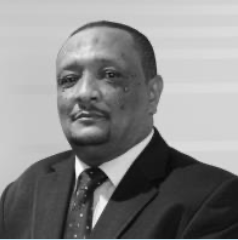By Chatura Randeniya and Mamoun Osman
|
The Authors
Chatura Randeniya Chatura’s practice focuses primarily on dispute resolution. He advises and represents clients in arbitration, and has represented clients in DIAC, ADCCAC, ICC and ad hoc arbitrations. He also works with local advocates on matters before the UAE Federal courts. Chatura regularly advises clients in high value construction, and maritime and shipping disputes. He is admitted as Attorney-at-Law of the Supreme Court of Sri Lanka. He is a recommended practitioner by Legal 500 EMEA.
Mamoun Osman Mamoun’s practice focuses on court litigation and commercial law and his experience includes conducting legal research, drafting all types of memoranda, pleadings and applications to all levels of local UAE courts. He has over fifteen years of experience representing clients before courts of jurisdiction, arbitration panels and other tribunals in all types of disputes. |
- There is a high possibility that you will have to present your case to an expert: Although the appointment of experts is more likely in disputes involving technical issues (e.g. maritime disputes, construction disputes, etc.), it is increasingly common for the UAE courts to refer disputes which, on the face of it do not require expert assistance, to experts. The courts have the power to do so in terms of Article 69 of the Federal Evidence Law (No. 10 of 1992 as amended) which provides that a court may delegate to one or more experts when necessary. Article 69 does not set out any criteria to be satisfied in exercising this power. The most frequent appointment is of accounting experts.
- It is likely to be a pivotal stage of litigation: In the clear majority of cases, the courts adopt the conclusions of theexpert, even though the expert’s report is not binding on the court. However, Article 90(2) of the Federal Evidence Law provides that if the court issues a judgment which contradicts the findings of the expert, the court must state the reasons why it disagrees with the expert’s findings. It is therefore important to ensure that your case is properly pleaded and understood by the expert.
- You may object, on certain limited grounds, to the appointment of a person as an expert: A party may object to an expert if there is a reason to believe that he/she cannot perform his/her duties impartially, if he/she is related by blood or by law to one of the parties up to the fourth degree, is a proxy to one of them in his/her personal affairs, a guardian or tutor or working for one of the parties, or if he/she or his/her spouse is in actual litigation with one of the parties in the case or with his/her spouse. An objection must be filed within a week of the order appointing the expert.
- Experts have wide discretion to carry out their functions: The order appointing an expert will set out a mandate for the expert, and will vest the expert with the authority and powers required to carry out his tasks, e.g. to visit the premises of the parties, examine documents, and hear witnesses without administering an oath to them. Parties can take the opportunity to ask the expert to require their opponents to produce certain documents, which is useful as document production in the courts is very limited.
- You have an uphill task ahead of you if the expert does not give you a favourable report, but all is not lost: The parties are given an opportunity to comment on the expert’s report before the court issues judgment. A party may also request the court to refer the matter to a different expert, or a panel of experts, or an expert at the Ruler’s Court, although such requests are rarely granted. The court, on its own initiative or upon request of a party, may order the expert to be present in court to be questioned, although such orders are also rare. Pursuant to Court Circular 4/2018 issued by the Dubai courts, parties are permitted to submit reports prepared by an expert for consideration by the judge. The privately appointed expert must be accredited by the courts, and his report should not criticize the court-appointed expert’s report (even though there may be disagreement regarding the findings).
- An expert could be criminally liable if he provides a report that he knows to be false, or gives a false interpretation of facts: Article 257 of the UAE Penal Code (Federal Law No. 3 of 1987 as amended) provides for a sentence of imprisonment between one and five years. In practice however these are difficult allegations to prove.
- An expert’s report may assist a party to obtain provisional relief: The UAE courts have the power to grant provisional relief pursuant to applications made without notice to the defendant. Such relief is sought primarily under the provisions of Article 252 of the UAE Civil Procedure Code or the Federal Maritime law. These discretionary orders are granted on the basis of documentary evidence filed by the applicant, and having a report from an expert accredited by the court can sometimes improve the odds of obtaining an order from the court. ■
| Afridi & Angell
Founded in 1975, Afridi & Angell is a full-service UAE law firm in its fifth decade at the forefront of the legal community. From the beginning, our hallmarks have been a commitment to quality, unsurpassed knowledge of the law and the legal environment, and crafting of innovative business solutions. Licensed in the three largest Emirates of Abu Dhabi, Dubai and Sharjah as well as the Dubai International Financial Centre, our practice areas include banking and finance; corporate and commercial law; arbitration and litigation; construction; real estate; infrastructure projects; energy; project finance; maritime (wet and dry); and employment. We advise local, regional and global clients ranging in size and sophistication from start-ups, sole proprietorships, family-owned businesses, entrepreneurs and investors to some of the world’s largest public and private companies, governments and quasi-government institutions. We attract and retain clients with our dedication to practical guidance focused on their business needs supported by decades of experience here in our home jurisdiction, the UAE. Afridi & Angell is the exclusive member firm in the UAE of top legal networks and associations, most notably Lex Mundi, the world’s leading network of independent law firms, and World Services Group. |
| Afridi & Angell’s inBrief provides a brief overview and commentary on recent legal announcements and developments. Comments and opinions contained herein are general information only. They should not be regarded or relied upon as legal advice.
© 2019, Afridi & Angell |




